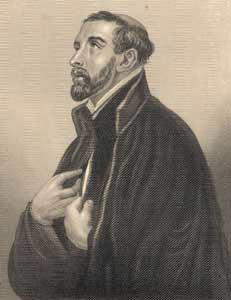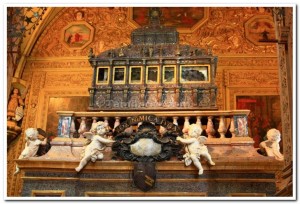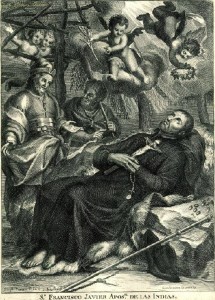Episode 4 – Regnum Novum: Bringing forth the New Evangelization through Catholic Social Teaching with Omar Guiterrez – Value 4 Truth, Freedom, Justice, and Love part 1 “Truth and Freedom”
– Value 4 Truth, Freedom, Justice, and Love part 1 “Truth and Freedom”
Discerning Hearts is blessed to present Omar F. A. Guiterrez, M.A. , Special Assistant to Archbishop George Lucas of the Archdiocese of Omaha, in a groundbreaking series which breaks open the heart of Catholic Social Doctrine.
We encourage you to visit “Regnum Novum – A New Kingdom: A Revolution” Omar Guiterrez’s blog site
 We live at a very special time. The confluence of many things has brought forth the clear need to be able to articulate the Social Teaching of the Catholic Church in a way that is accessible and applicable. This is not to be an effort where high-minded theories are to be bandied about. Rather, this is a time of opportunity wherein we can apply the Social Doctrine to the concrete so as to bring about a New Kingdom, a Revolution. – Omar G. from Regnum Novum
We live at a very special time. The confluence of many things has brought forth the clear need to be able to articulate the Social Teaching of the Catholic Church in a way that is accessible and applicable. This is not to be an effort where high-minded theories are to be bandied about. Rather, this is a time of opportunity wherein we can apply the Social Doctrine to the concrete so as to bring about a New Kingdom, a Revolution. – Omar G. from Regnum Novum
[powerpress]
From episode … 4. Truth, Freedom, Justice, and Love part 1 “Truth and Freedom”
These are the four values of the Social Teaching of the Catholic Church as they’re enumerated in the Compendium and as they were laid out by, again, Blessed Pope John XXIII in Mater et magistra and Pacem in terris. Without these values, the work of social justice becomes an albatross around our necks. It pulls us down, threatening to poison all the work we do, no matter how well intentioned.
When charity lacks truth, as Pope Benedict XVI states, it can be filled with every whim and agenda and becomes the opposite of itself. Truth is the truth of the fundamental dignity of the human person, a dignity we can only fully appreciate in the encounter with Christ.
A freedom that requires self-destruction is no freedom at all. Authentic freedom is the ability to do what is good, but this requires that we know the truth about the good.
(Justice and Love covered in proceeding episodes)
Also visit Omar’s “Discerning Hearts” page Catholic Social Teaching 101
Tags: catholic, catholic podcast, catholic prayer, catholic social doctrine, cathollc spirituality, dignity of the human person, freedom, pope benedict xvi, pope john xxiii, social teaching of the catholic church, truth
This entry was posted on Wednesday, December 29th, 2010 at 7:00 am
You can follow any responses to this entry through the RSS 2.0 feed.
Episode 3 – Regnum Novum: Bringing forth the New Evangelization through Catholic Social Teaching with Omar Guiterrez -Value # 3 – Look , Judge, Act 
Discerning Hearts is blessed to present Omar F. A. Guiterrez, M.A. , Special Assistant  to Archbishop George Lucas of the Archdiocese of Omaha, in a groundbreaking series which breaks open the heart of Catholic Social Doctrine.
We encourage you to visit “Regnum Novum – A New Kingdom: A Revolution†Omar Guiterrez’s blog site
 We live at a very special time. The confluence of many things has brought forth the clear need to be able to articulate the Social Teaching of the Catholic Church in a way that is accessible and applicable. This is not to be an effort where high-minded theories are to be bandied about. Rather, this is a time of opportunity wherein we can apply the Social Doctrine to the concrete so as to bring about a New Kingdom, a Revolution. – Omar G. from Regnum Novum
We live at a very special time. The confluence of many things has brought forth the clear need to be able to articulate the Social Teaching of the Catholic Church in a way that is accessible and applicable. This is not to be an effort where high-minded theories are to be bandied about. Rather, this is a time of opportunity wherein we can apply the Social Doctrine to the concrete so as to bring about a New Kingdom, a Revolution. – Omar G. from Regnum Novum
[powerpress]
3.  Look, Judge, Act
Blessed Pope John XXIII gave us this practical suggestion in his letter Mater et magistra. The Social Doctrine provides us with principles for reflection, criteria for judgment, and directives for action. Social justice is supposed to be lived out in our every day. That’s the point, and so this Holy Father gave us the paradigm.
Look at the world around you, that which is most immediate to you. Start with your family. Proceed to your culture. Witness the social and economic realities/policies near you. Know the political landscape of your city, county, state, and nation. See your neighbors close at hand and around the world. Use the principles of the Social Teaching as you look so that you know what to look for.
Judge what is best for the family, for the culture, for the society and the economy, for the state, for the world. Use the criteria provided by the Social Doctrine. What is missing? Why is it missing? What can be done?
Act on it. You’re a lay person with as real an obligation to evangelization as any priest. Do something in the world so as to make it’s semblance more like that which the Lord desires. Volunteer. Participate. Pray. Do not let some tell you that prayer is not action. Pray. You can pray and raise good children.
Also visit Omar’s “Discerning Hearts†page Catholic Social Teaching 101
Tags: catholic, catholic podcast, catholic prayer, catholic social doctrine, catholic social teaching, cathollc spirituality, lay person, look judge act, mater et magistra, new evangelization, Omar F. A. Guiterrez, political landscape, pope john xxiii, regnum novum, social justice, social teaching of the catholic church
This entry was posted on Friday, December 10th, 2010 at 5:52 pm
You can follow any responses to this entry through the RSS 2.0 feed.
In my book, every missionary is great. It takes a great amount of courage and zeal, along with a great deal of faith, hope, and love, to proclaim Christ crucified to the world no matter what age you live in, no matter where you travel…whether next door or to a far away land. One of those who has inspired so many is St. Francis Xavier. Omar Gutierrez does another fine job bringing this saint’s witness deeper into our hearts….
crucified to the world no matter what age you live in, no matter where you travel…whether next door or to a far away land. One of those who has inspired so many is St. Francis Xavier. Omar Gutierrez does another fine job bringing this saint’s witness deeper into our hearts….
For the Love of Neighbor…
by Omar F. A. Gutierrez  Along a rather busy street in Rome, as one walks along with various-colored motorini passing by in the typical Italian nonchalance, there stands a rather impressive façade of a Church. Churches in Rome are not rarities. Edifices of worship, shrines and even bits of images of the Blessed Virgin dot the city’s corners and crevices throughout. Here, though, with buildings rising tightly upward, is a church with a piazza that stands resolute. The Church is named after Jesus and is referred to by the Italian Gesù.
Along a rather busy street in Rome, as one walks along with various-colored motorini passing by in the typical Italian nonchalance, there stands a rather impressive façade of a Church. Churches in Rome are not rarities. Edifices of worship, shrines and even bits of images of the Blessed Virgin dot the city’s corners and crevices throughout. Here, though, with buildings rising tightly upward, is a church with a piazza that stands resolute. The Church is named after Jesus and is referred to by the Italian Gesù.
Inside the Gesù, amidst the distracting busyness of the Baroque interior, one will find the remains of St. Ignatius of Loyola, the punctilious and perceptive Spaniard who founded the order known as the Society of Jesus, the Jesuits. Across the nave, though, is an oddly obvious glass display case gilt with gold and silver. Above this floats the golden form of an angel whose wings and flowing robes give a good deal of attention to the case, for inside the case, in that only-too-Catholic fashion, is… a forearm.
The forearm belonged, or I suppose I should say that it still belongs to another Spaniard who met St. Ignatius at the University of Paris whilst the two of them studied theology. The forearm is on display not in mere virtue of its owner’s friendship with Ignatius. It is on display because its owner, St. Francis Xavier, was one of the most successful missionaries in the history of Christianity. That forearm, black and no doubt by now quite brittle, baptized more souls than perhaps any since the early baptisms of thousands one reads about in the Scriptures.
St. Francis Xavier was born in 1506. When he met St. Ignatius of Loyola, it did not take long for him and five others to join Ignatius in 1534 and be those magnificent seven souls to start the Jesuit order that would transform the world. Nor did it take long, after their order had found some grounding, for St. Francis to be sent by St. Ignatius to go and preach to the world, as Jesus had commanded. St. Francis and his companions, Fr. Paul of Camarino and Francis Mansilhas, sailed from Portugal for India in 1541.
The story of his work in India is dazzling. Certainly Christianity had already been in parts of India, and been there for over a thousand years. However, large swaths of the land were still not evangelized, and anyway the Christians there needed the catechetical and spiritual support of ones like St. Francis, who traveled extensively regardless of danger, time, or geography. What is more astonishing is that the zeal which St. Francis held in that fiery heart of his was not quenched by the successes of India, Ceylon, and the nearby regions. St. Francis heard of a land in which Christianity had never come, Japan, and was compelled to do something about it.
In 1549, he and some companions set out for Japan and landed in Kagoshima. In a year they had 100 converts. Considering this a pittance, Francis pressed onward. At Hirado he was well received and converts came in the droves. His forearm tired at the effort of so many baptisms. Still he pressed on. By the time he left Japan in 1551 at least 2,000 Japanese had been baptized. But there were more lands to be given the Gospel.
I n August of 1552, St. Francis was off again, this time to China. Unfortunately, he fell ill there and died a short time after, on December 3, 1552.
n August of 1552, St. Francis was off again, this time to China. Unfortunately, he fell ill there and died a short time after, on December 3, 1552.
Some of the marks of St. Francis’ story are truly wonderful to relate, not the least of these is the sheer number of baptisms he performed during his eleven years of service in Asia. Modern estimates of his work put him at about 30,000 baptisms. To put that in perspective a bit, that means that St. Francis Xavier would have baptized between 7 and 8 people every day for eleven straight years.
Though he worked to learn the many languages of the lands in which he preached, of course keeping in mind that he would have already known Basque, Spanish, Latin, French, Italian, and Portuguese, he did not have the gift of tongues. The languages he picked up on in India and elsewhere were the result of grueling work on his part. He was not gifted as some are with languages. He had to work hard. This therefore meant that he got creative. He used art a good deal in the attempt to communicate the fundamentals of the faith and as a tool to remember creeds. He also met the people “where they were at,†as the saying goes these days. To the Indians he lived as they did in extreme poverty, eating only rice and water, sleeping on the ground in a hut. In Japan, this would not do. So he dressed richly and presented the local magistrate with fine gifts. This was well received, and he gained instant respect and thus an audience with attentive ears.
Just a couple of last points about St. Francis: first, his travels throughout the world included missionary work not just for the unbaptized but almost especially to already baptized Catholics. Imagine you’ve just sailed the seas for over a year in order to do work in a land far stranger to you than any you’ve ever visited. Upon arriving you discover that the port town is largely Christian. But then you witness what Fr. Butler will describe as the “ambition, avarice, usury, and debauchery†of the Christians there.
The sacraments were neglected, there were not four preachers and no priests outside the walls of Goa; when slaves were atrociously beaten, their masters counted the blows on the beads of their rosaries.
Fr. H. J. Colerdige, S.J. one of the biographers of St. Francis relates the following,
There has probably never yet been a zealous European missionary in any part of the heathen world in which Christians from his own country have been settled, or which they have occasionally visited for purposes of commerce, who has not found among them the worst enemies to his work. No exception can be made as to this lamentable truth in favour of Catholic nations: Spaniards, Frenchmen, Portuguese have as much to answer for in this respect as Dutchmen and Englishmen.
In other words, no Christian missionary has been spared the embarrassment of having to explain to the prospective flock the atrocious behavior of Christians. St. Francis had clearly a lot to do for the Christians already there in Goa. Normally, we…normally I would have thrown in the towel at that point. What is the purpose of preaching the Gospel when the very people who are supposed to be living it are behaving so poorly? Have you not asked yourself thi s question?
s question?
The rest of St. Francis Xavier in the Basilica of Bom Gesu in Goa, India
I dare say that we’ve all experienced something like this in our lives. Have we heard the line that the Church is in more danger of corruption from Catholics within than from non-Catholics without? There is something true in that saying I think. Yet St. Francis pressed on. His dedication to Christ Jesus was so deeply ingrained in him, that he did not need to know that all Catholics would behave properly for him to fulfill his vocation. All he needed to do was to listen to God, to press on living for Him.
Lastly, I don’t want to suggest that St. Francis was callously dismissive of the atrocities he found. Of them he wrote that they became “a permanent bruise on my soul.†He allowed the love for Christ to inform his care for his neighbor, over against those of his own faith. He wrote once, when an Indian was abducted for the slave trade,
Would the Portuguese be pleased if one of the Hindus were to take a Portuguese by force and carry him up country? The Indians must have the same feelings.
This ability of St. Francis Xavier to be driven by his compassion for his  neighbor well enough to see beyond the natural affinities of nation, ethnicity, and faith… this ability to defend the rights of these downtrodden strangers, only brings me to wonder how we can be Catholic, today in the U.S., and not desire for ourselves more largeness of heart for the immigrant. Immigration is too large an issue to enter into here, but given the life of St. Francis presented above, how do we really think he would behave in our current time? Would he deny prenatal care to a woman because her proximity is illegal? Would he demand his neighbor produce proof of eligibility before offering them something as simple as shelter from the storm? No, St. Francis Xavier wouldn’t, not the great missionary, not the grand heart, not the forearm that helped to reconcile strangers in his valley of tears to the God of our homeland in the heavens.
neighbor well enough to see beyond the natural affinities of nation, ethnicity, and faith… this ability to defend the rights of these downtrodden strangers, only brings me to wonder how we can be Catholic, today in the U.S., and not desire for ourselves more largeness of heart for the immigrant. Immigration is too large an issue to enter into here, but given the life of St. Francis presented above, how do we really think he would behave in our current time? Would he deny prenatal care to a woman because her proximity is illegal? Would he demand his neighbor produce proof of eligibility before offering them something as simple as shelter from the storm? No, St. Francis Xavier wouldn’t, not the great missionary, not the grand heart, not the forearm that helped to reconcile strangers in his valley of tears to the God of our homeland in the heavens.
Perhaps, then, take time this day of St. Francis Xavier and consider the immigrant in our midst, the stranger in a strange land. If you find your heart hardened by the vituperative rhetoric that so dominates our political culture, then I ask you only to pray to St. Francis the Spaniard, St. Francis the missionary, St. Francis the lover who allowed that love to bring Jesus to the world. Perhaps we might raise a forearm, glass in hand of course, and toast with a friend the same love that saved a wretch like me.
In that spirit: St. Francis Xavier…pray for us!
 Thanks Omar for another great post!!! visit Regnum Novum for more by Omar
Thanks Omar for another great post!!! visit Regnum Novum for more by Omar
Tags: catholic, catholic podcast, catholic prayer, cathollc spirituality, china, churches in rome, india, martyr, missionary, society of jesus, st francis xavier, st. ignatius of loyola
This entry was posted on Friday, December 3rd, 2010 at 9:06 am
You can follow any responses to this entry through the RSS 2.0 feed.
 St. Andrew Dung Lac and Companions
St. Andrew Dung Lac and Companions
Nov 24th, 2010 by Omar F. A. Gutierrez (check out Regnum Novum)
Today marks the Memorial of the Martyrs of Vietnam often referred to as the Memorial of Andrew Dung Lac and Companions. This is an interesting memorial in that the number of martyrs commemorated include about 117 names of known martyrs but also the untold thousands whom we do not know. Furthermore, the memorial is for martyrs from various times in Vietnam’s history, from the 17th through the 20th centuries.The memorial was set by Pope John Paul the Great on June 19th, 1988. He canonized 117 Vietnamese but noted that there were somewhere between 130,000 to 300,000 martyrs for the Catholic faith in that nation. The suffering of these people has been astounding. In the 19th century, when persecution of Catholics was at its worst, entire villages of Vietnamese were slaughtered by the regime. The reason given was that the Catholics were involved in political revolutions, attempting to put a Catholic-friendly ruler into power. Being Catholic, then, became a crime, and, echoing the years of Christian persecution in Ancient Rome, Vietnamese were called upon to stomp on a crucifix to prove that they were not Christian. Those who refused were tortured horribly and then killed. The lucky ones were only branded on their faces with the Vietnamese words for “perverse religion.â€
During the fall of Vietnam to Communist rule in the 20th century and of course due to the war, many Vietnamese fled their homeland and came to the United States. Interestingly, since about 1977, the American Vietnamese community has had a four-day celebration in little Carthage, Missouri dedicated to Our Lady and in celebration of their heritage and faith. The Marian Days Festival happens every year in the summer and the small Missouri town is inundated with upwards of 50,000 Vietnamese who celebrate Mass together, sing to Our Lady of Fatima, and eat really good Vietnamese food.
This memorial to the Vietnamese Martyrs ought to remind us of one of the greatest of Vietnamese Catholics, Cardinal Francis Xavier Nguyen Van Thuan. Cardinal Francis Xavier, as he liked to introduce himself, had a meteoric rise in Vietnam as a young man. The son of very devout Catholic parents, he was extremely bright. He earned advanced degrees in theology, philosophy, and canon law all by the time he was in his early twenties.
He eventually became the coadjutor bishop of Saigon in 1975. Six days later, Saigon fell to the North Vietnamese, and the Cardinal was thrown into prison. He spent thirteen years there, nine of them in solitary confinement. While in confinement a village boy would bring him paper, and Cardinal Van Thuan would write down some encouraging word or phrase. These messages from the Cardinal in prison helped bouey the people for which he was still a shepherd. They have since then been compiled into the books The Road to Hope and Prayers of Hope.
He was released from prison in 1988, the same year as the canonization of the Vietnamese Martyrs. He was allowed to leave for Rome in 1991, but was then never allowed back by the government…that is until 2001.
While in Rome, he made many impressions on people, not the least of these being Pope John Paul the Great. It was that Holy Father who in 1994 elevated the little bishop from Vietnam to be President of the Pontifical Council of Justice and Peace and made him a Cardinal.
In 1999, in the document to us Ecclesia in America (The Church in America), John Paul wrote:
54. Faced with the grave social problems which, with different characteristics, are present throughout America, Catholics know that they can find in the Church’s social doctrine an answer which serves as a starting-point in the search for practical solutions. Spreading this doctrine is an authentic pastoral priority. … In this regard, special care must be taken to train lay persons capable of working, on the basis of their faith in Christ, to transform earthly realities. In addition, it will help to promote and support the study of this doctrine in every area of the life of the particular Churches in America, especially in the universities, so that it may be more deeply known and applied to American society. The complex social reality of the continent is a fruitful field for the analysis and application of the universal principles contained in this doctrine.
To this end, it would be very useful to have a compendium or approved synthesis of Catholic social doctrine, including a “Catechismâ€, which would show the connection between it and the new evangelization.
It was then up to Cardinal Nguyen Van Thuan to try to make heads or tails out of the vast array of social documents and social commentary, to try to bring together people from vastly different political and social backgrounds, to try to – in Herculean manner – build an edifice for the Social Doctrine of the Church that would at once stand the test of time but also be relevant to our lives here and now. This was no small task, but it was his.
The Compendium we have now is a splendid work which accomplishes everything that the good Cardinal desired. Unfortunately, he died before its completion in 2002. Still the preliminary work and guidance which he provided proved decisive for the construction of one of the most useful tools for the social doctrine that exists. Cardinal Van Thuan’s process for canonization was opened in 2007, having met the minimum 5 years. Pope Benedict XVI actually mentions Cardinal Van Thuan in his second encyclical Spe Salvi as a “witness to hope.â€
So on this day of remembrance for the Vietnamese Martyrs, remember them, remember Cardinal Francis Xavier Nguyen Van Thuan, and remember to be thankful for the great peace and tranquility that our culture affords us in being able to pray freely.
I’ll leave you with the ten rules of life by which the Cardinal lived. Go here to learn more.
 1. I will live the present moment to the fullest.
1. I will live the present moment to the fullest.
2. I will discern between God and God’s works.
3. I will hold firmly to one secret: prayer.
4. I will see in the Holy Eucharist my only power.
5. I will have only one wisdom: the science of the Cross.
6. I will remain faithful to my mission in the Church and for the Church as a witness of Jesus Christ.
7. I will seek the peace the world cannot give.
8. I will carry out a revolution by renewal in the Holy Spirit.
9. I will speak one language and wear one uniform: Charity.
10. I will have one very special love: The Blessed Virgin Mary.
Oh and this:
I am happy here, in this cell, where white mushrooms are growing on my sleeping mat, because You are here with me, because You want me to live here with You. I have spoken much in my lifetime: now I speak no more. It’s Your turn to speak to me, Jesus; I am listening to You.
Recorded on the Feast of the Holy Rosary, October 7, 1976, in Phu-Khanh prison during his solitary confinement. Regnum Novum
 Thanks one again Omar G. for an outstanding contribution to our on going formation!
Thanks one again Omar G. for an outstanding contribution to our on going formation!
Tags: Andrew Dung Lac, Cardinal Francis Xavier Nguyen Van Thuan, Cardinal Nguyen Van Thuan, catholic, catholic podcast, catholic prayer, cathollc spirituality, christian persecution, martyrs, pope john paul, pope john paul the great, vietnamese community
This entry was posted on Wednesday, November 24th, 2010 at 8:20 am
You can follow any responses to this entry through the RSS 2.0 feed.
Episode 2 – Regnum Novum: Bringing forth the New Evangelization through Catholic Social Teaching with Omar Guiterrez – Introduction and Value # 2 – Communion not opposition
– Introduction and Value # 2 – Communion not opposition
Discerning Hearts is blessed to present Omar F. A. Guiterrez, M.A. , Special Assistant  to Archbishop George Lucas of the Archdiocese of Omaha, in a groundbreaking series which breaks open the heart of Catholic Social Doctrine.
We encourage you to visit “Regnum Novum – A New Kingdom: A Revolution†Omar Guiterrez’s blog site
 We live at a very special time. The confluence of many things has brought forth the clear need to be able to articulate the Social Teaching of the Catholic Church in a way that is accessible and applicable. This is not to be an effort where high-minded theories are to be bandied about. Rather, this is a time of opportunity wherein we can apply the Social Doctrine to the concrete so as to bring about a New Kingdom, a Revolution. – Omar G. from Regnum Novum
We live at a very special time. The confluence of many things has brought forth the clear need to be able to articulate the Social Teaching of the Catholic Church in a way that is accessible and applicable. This is not to be an effort where high-minded theories are to be bandied about. Rather, this is a time of opportunity wherein we can apply the Social Doctrine to the concrete so as to bring about a New Kingdom, a Revolution. – Omar G. from Regnum Novum
[powerpress]
From episode … 2.   Communion not opposition
As I say in some of my posts, there is a spirit of opposition in a good deal of the social work that happens today. The corruption of workers’ unions is one of the great tragedies of our day. Imagine what great work they could do on top of the many achievements they’ve made. But they do not universally do great work because they are caught up in the oppositionist paradigms that make integral human development impossible.
True social justice requires that we drop these paradigms of opposition: management vs. labor; bourgeois vs. proletariat; state vs. individual. We own the great Catholic both/and. It applies to the Social Teaching of the Catholic Church more than ever.
Also visit Omar’s “Discerning Hearts†page Catholic Social Teaching 101
Tags: catholic, catholic podcast, catholic prayer, catholic social doctrine, catholic social justice, catholic social teaching, cathollc spirituality, new evangelization, Omar Guiterrez
This entry was posted on Friday, November 19th, 2010 at 5:34 pm
You can follow any responses to this entry through the RSS 2.0 feed.
Episode 1 – Regnum Novum: Bringing forth the New Evangelization through Catholic Social Teaching with Omar Guiterrez – Introduction and Value # 1 – Jesus Christ
– Introduction and Value # 1 – Jesus Christ
Discerning Hearts is blessed to present Omar F. A. Guiterrez, M.A. , Special Assistant  to Archbishop George Lucas of the Archdiocese of Omaha, in a groundbreaking series which breaks open the heart of Catholic Social Doctrine.
[powerpress]
We encourage you to visit “Regnum Novum – A New Kingdom: AÂ Revolution” Omar Guiterrez’s blog site
 We live at a very special time. The confluence of many things has brought forth the clear need to be able to articulate the Social Teaching of the Catholic Church in a way that is accessible and applicable. This is not to be an effort where high-minded theories are to be bandied about. Rather, this is a time of opportunity wherein we can apply the Social Doctrine to the concrete so as to bring about a New Kingdom, a Revolution. – Omar G. from Regnum Novum
We live at a very special time. The confluence of many things has brought forth the clear need to be able to articulate the Social Teaching of the Catholic Church in a way that is accessible and applicable. This is not to be an effort where high-minded theories are to be bandied about. Rather, this is a time of opportunity wherein we can apply the Social Doctrine to the concrete so as to bring about a New Kingdom, a Revolution. – Omar G. from Regnum Novum
From episode … 1.     Jesus Christ
You may not believe how many advocates of social justice are only too ready to chuck Jesus out the window in order to get you to buy their plan. One such program of which I’m familiar actually includes materials that deny the divinity of Christ, several times, and deny the salvific work of the cross. As Pope Paul VI and Pope Benedict XVI have said, the Social Doctrine is evangelization. If it is not rooted in the truth, then it can be manipulated to mean whatever one wants it to mean. The truth is quite simply, Jesus Christ who, as Gaudium et spes states, reveals man to himself. The Social Doctrine and the work of charity must stem from an intimate knowledge of Jesus Christ so that they might serve the whole person and point back to Christ.
Also visit Omar’s “Discerning Hearts” page Catholic Social Teaching 101
Tags: catholic, catholic podcast, catholic prayer, catholic social doctrine, catholic social justice, catholic social teaching, cathollc spirituality, jesus christ, new evangelization, Omar Guiterrez, social doctrine, truth, work
This entry was posted on Friday, November 12th, 2010 at 4:39 pm
You can follow any responses to this entry through the RSS 2.0 feed.


